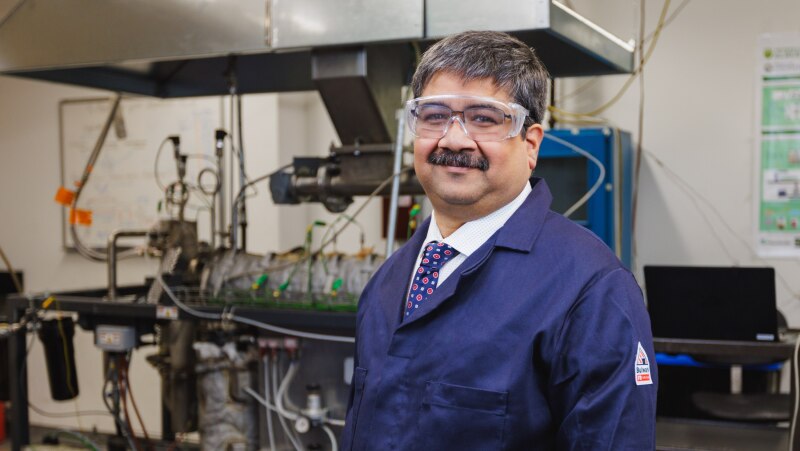Alberta is positioning itself as a global leader in hydrogen energy, with the University of Alberta announcing the creation of the Center for Hydrogen Innovation, Workforce Development, and Outreach (CHIWDO). The province is already Canada’s largest hydrogen producer, historically using natural gas-derived hydrogen in bitumen upgrading and fertilizer production. Now, with growing global demand for clean energy, Alberta is expanding its focus to low-emission hydrogen technologies.
CHIWDO, based in the U of A’s Faculty of Engineering, will consolidate the efforts of more than 60 researchers working across the hydrogen value chain, including production, storage, transportation, and utilization. It will also play a key role in workforce training, policy development, public education, and collaboration with government, industry, community groups, and Indigenous partners to ensure broad impact.
According to Amit Kumar, Canada Research Chair in Assessment of Energy Systems and a lead advisor on Alberta’s Hydrogen Roadmap, the center aims to bridge fundamental research with applied solutions to support both local and international hydrogen markets.
“Hydrogen is relatively new, and people aren’t sure, for example, what the impact will be when hydrogen is put through existing natural gas pipelines to heat our homes,” said Kumar.
Alberta’s government has recently introduced legislation allowing the blending of hydrogen into natural gas pipelines to reduce emissions, a concept supported by U of A research showing it could cut residential heating emissions by 5% without infrastructure changes.
CHIWDO’s research will also support industry by establishing safety standards, analyzing economic and technical impacts, and creating tools for investment and policy. The center builds on several recent hydrogen-related breakthroughs at the university, including hydrogen extraction with reduced CO2 emissions, solar-powered water splitting, microwave-based hydrogen production, and underground storage in salt caverns.
In partnership with Alberta Innovates’ Hydrogen Center of Excellence, CHIWDO will complement existing testing and commercialization efforts with academic research and training programs. It plans to offer hydrogen-focused graduate degrees, co-op placements, and outreach initiatives, especially targeting underrepresented and Indigenous communities.
The global hydrogen market is projected to exceed $2.5 trillion by 2050, with Canada’s Hydrogen Strategy forecasting hydrogen could meet up to 30% of domestic end-use energy demand. Alberta’s existing energy workforce, infrastructure, and low-cost production capabilities make it well-suited to serve growing North American and Asia Pacific markets.
“Unlocking hydrogen’s potential will have a transformative impact on a global scale—and that is the ambitious vision of the University of Alberta,” said U of A President Bill Flanagan. “We are at the forefront of hydrogen innovation, and we are leveraging our unique position to take a bold step forward.”

